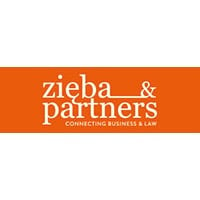

General counsel | Aion




Dominika Niewiadomska-Siniecka
General counsel | Aion
Head of legal | P4 (Play Mobile)
One of Poland’s leading in-house lawyers in the telecommunications sector, Dominika Niewiadomska-Siniecka receives praise from peers for her reliability and initiative, as well as her in-depth understanding of several areas...
What are the most important transactions and litigations that you have been involved in during the last two years?
Participating in the process of the acquisition of a Belgian bank, getting required approvals from the National Bank of Belgium and the European Central Bank to complete the acquisition. The acquisition was first announced in October 2018 and finalised in June 2019. The bank is subject to Belgian regulations and Belgian financial supervision.
Conducting the initial public offering of PLAY Communications, the 100% owner of mobile operator P4 (PLAY), one of Europe’s fastest
growing telecom companies with 15 million clients. The process translated into IPO value
of PLN4.4bn.
Signing a set of agreements, including
agreement granting PLAY a call option to
acquire Virgin Mobile Polska (VMP) in 2020.
VMP is the largest full mobile virtual network operator in the CEE region. The agreements
define terms of future cooperation between
the parties, with increased committed
revenues by approx. PLN25m up to a total of approximately PLN84m to PLAY for the years
2018-2021.
Signing of a cooperation agreement concerning cooperation in terms of providing mobile services, between PLAY and UPC Polska.
How important are “soft skills” or personal attributes outside of technical legal skill, and which “soft skills” do you feel are most important for an in-house lawyer to possess?
The role of the in-house lawyer and the legal and compliance function is evolving. This is greatly influenced by the different perception of the profession by employers, internal clients, business partners and, as a consequence, by headhunters. It is expected that we should be business enablers rather than legal advisors and risk spotters, which requires “reprogramming” learned behaviour. What makes good lawyers great is not only good academic knowledge and analytical intelligence but “soft skills” like networking, attitude, behaviour, passion and last but not least – adaptability.
Do you utilise any legal tech products, and if so, how do these assist you in your role?
I work in a technologically innovative, creative and open (to new trends) company. These factors force a change in the style of work and tools used for it. Taking into account that collaboration between team members, the speed and effectiveness of implemented solutions is of the essence, and we use contract management software.
What is important is that files can be accessed from any computer with an internet connection, and multiple authors can work together in real time on the content, see who made specific document changes and when those alterations were done. In addition, we are in the process of testing of legal fee management software and legal research software.
What advice would you give to any peers or colleagues working in the Polish market for the first time?
As a member state of the European Union since 2004, Poland has implemented the EU Directives into its domestic legal system. The legal regime is therefore not very different from other EU countries. However the devil is in the details, and it is worth cooperating with a local law firm which not only provides legal advice but also has a knowledge of sectoral regulations, recommendations of supervisory authorities, governing bodies or the competition and consumer protection office.
What can law firms in Poland, and the wider CEE region, do to win more business from you?
Legal expertise is very important but what is more important is attitude. The external counsel need to be like a “member of the family” who understand the business, the sector it operates in but also the dynamic of cooperation. The general counsel works under time pressure and very often needs quick and relevant advice instead of waiting for weeks for a legal opinion with disclaimers. I used to work with individuals rather than a particular firm with whom I build strong relationships and trust. It is crucial because ultimately, my reputation is at risk if I don’t get the best advice. On the other hand trust results in more commissioned work to external lawyer. I rely also on their advice if my company needs to extend business abroad. They know our “DNA” and can indicate the external advisor in other countries who fits the most. It is also good to be proactive. Distribution of “legal alerts” with a description of the potential impact on business, training and conferences build relationships.
FOCUS ON… DIGITAL READINESS
For years I’ve heard the message that digital transformation is necessary for companies to remain competitive in an increasingly digital world. Digital transformation refers to the adoption of digital processes and tools to achieve strategic business goals.
Are we as general counsel digitally ready? We think so until we experience it for ourselves. From my experience it turns our working life upside down. My first association with being digital was related to software. I have experience in negotiating technical contracts, also regarding the Cloud platform, which I thought was half the battle, but fundamentally, digital transformation is about changing how teams work together, it is about changing your attitude. One solution is implementing agile methodology, which is now experiencing a second life and is no longer used only in the tech world. It is characterised by constant iteration and collaboration, involves a system of team meetings followed by sprints to allow for more fully answer customers’ needs.
Thus, expanding the circle of people you are working with, with whom you would probably not normally encountered. This work methodology is supported by the work environment, where the office area can then be split into a selection of zones, for example team meeting space, collaboration space, conference call space or relaxation space. As you have rightly noticed, there is no legal department space or senior staff don’t have their own offices. Multidimensional work requires fast and efficient tools. If your tech stack is Microsoft Word, you have never heard of sharing documents in a collaboration room, where multiple authors can work together in real time on the content, didn’t setup online video conference, well… this is waiting for you as soon as you want to try.
Digital transformation is closely related to security transformation. Therefore, in addition to the already “non-standard” duties, you should also ensure that company’s data privacy and cybersecurity techniques remain in line with legal standards. Summarising, I quote Monique Shivanandan, Group CIO at Chubb Group of Insurance Companies: ‘The biggest part of our digital transformation is changing the way we think’.